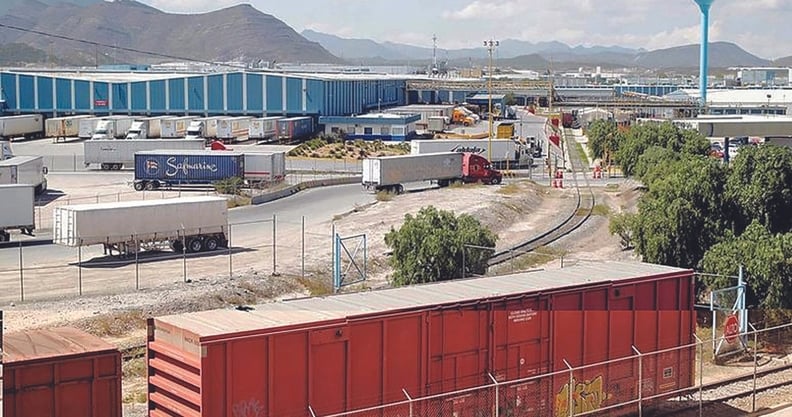Suppliers fret over rising costs, crime in fast-growing Mexico
John Irwin | Automotive NewsSuppliers fret over rising costs, crime in fast-growing Mexico
As the auto sector considers Mexico for new industry investment, some companies say they're running into troubling issues.
From safety concerns to labor turnover and wage inflation to the impact of a stronger peso, the country is becoming a more expensive play than it used to be for some companies — even as the industry is relying on it more than ever.
"Security is an issue," Forvia CEO Patrick Koller told Automotive News. "Inflation is high and labor inflation is high. Labor availability is becoming an issue. I'm not saying it's better in the U.S., but we are also starting to have problems" in Mexico.
Mexico's importance to the North American automotive supply chain continues to grow as automakers and suppliers alike seek to become less dependent on China and other overseas markets.
High U.S. tariffs on China-made automotive goods, U.S. policy incentivizing North American production, and companies looking to avoid repeats of the supply chain challenges of the pandemic era have combined to bring more vehicle and parts production to Mexico.
According to the U.S. Census Bureau, imports from Mexico accounted for 45 percent of all motor vehicle parts imports into the U.S. in 2023, compared with 40 percent in 2017, while fewer imports have come from China in that time.
"We're seeing more and more in Mexico because we're trying to pull away from China," said Mark Wakefield, managing director at AlixPartners. "With U.S. labor rates going up and general inflation in the U.S., there's more incentive to look for other options, and Mexico looks attractive from that perspective."
But manufacturers are grappling with higher wage inflation in Mexico. According to a May report by the Federal Reserve Bank of Dallas, labor costs in Mexico are rising faster than labor productivity, with average daily wages going up by as much as 14 percent between 2019 and 2023.
Labor productivity hasn't kept up with the rising compensation. Since 2019, labor costs have increased 1.8 times faster than labor productivity in manufacturing in Mexico, the report said.
"When labor costs rise faster than labor productivity, they can impede hiring and lower the competitiveness of domestic and international firms in Mexico," the report said.
While increases in wages are manageable for many companies in Mexico, suppliers that have businesses with tight margins can be more impacted, Wakefield said.
Margins squeezed
Margins across the supplier sector have been squeezed in recent years by higher costs and reduced new-vehicle production.
"If you have business cases that are on the margin, then it can get difficult," he said. "If you quoted a business at $8 per hour instead of $8.20, that can be meaningful."
Suppliers have been singling out labor inflation as a significant concern in the face of tight margins.
Lear Corp., for example, saw its annual wage costs rise worldwide by around $60 million between 2022 and 2023.
In response, the company has implemented a host of strategies to offset the costs, including implementing more automation to boost efficiency and moving production to lower-cost areas.
That includes moving some production from near the U.S.-Mexico border further inland, Lear CFO Jason Cardew said on a February call with analysts and investors.
"I think one of the biggest challenges we have is in regards to wage inflation," he said.
Companies also struggle with employee turnover, especially skilled trades workers, Wakefield said.
"Turnover is really high, and the training gets to be difficult, particularly when you just have an incredible amount of turnover due to people taking a small amount more to move elsewhere," he said.
Stronger peso
In addition to higher labor costs, auto companies doing business in Mexico have suffered from the strengthening of the peso. According to the Fed, the peso gained nearly 20 percent against the U.S. dollar over the past two years, translating to higher export costs.
The Fed also cited high levels of violence and crime as "obstacles to economic activity and foreign and domestic investment." The report's authors said homicides have averaged around 35,500 per year nationwide the previous four years, up 25 percent from the 2015-18 period.
Forvia's Koller said the company has lost trucks transporting parts in the region.
"The level of corruption is huge and is increasing every day," Koller said, citing that as a significant concern for the company as it weighs where to invest.
Despite those concerns, the company is still likely to choose Mexico as it weighs where to open a hydrogen tank factory — in large part because Mexico is where its customers are most likely to set up shop.
"The tanks are big and transportation of these tanks is not so easy," Koller said.


